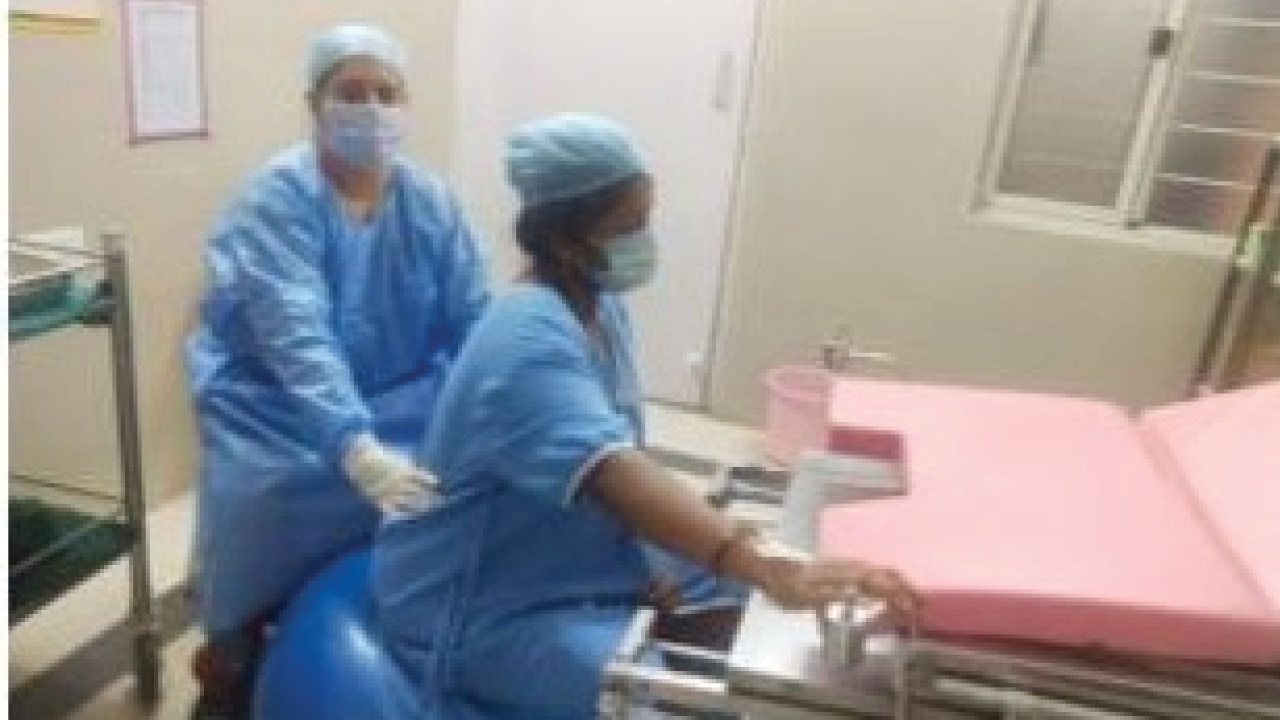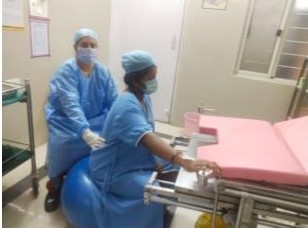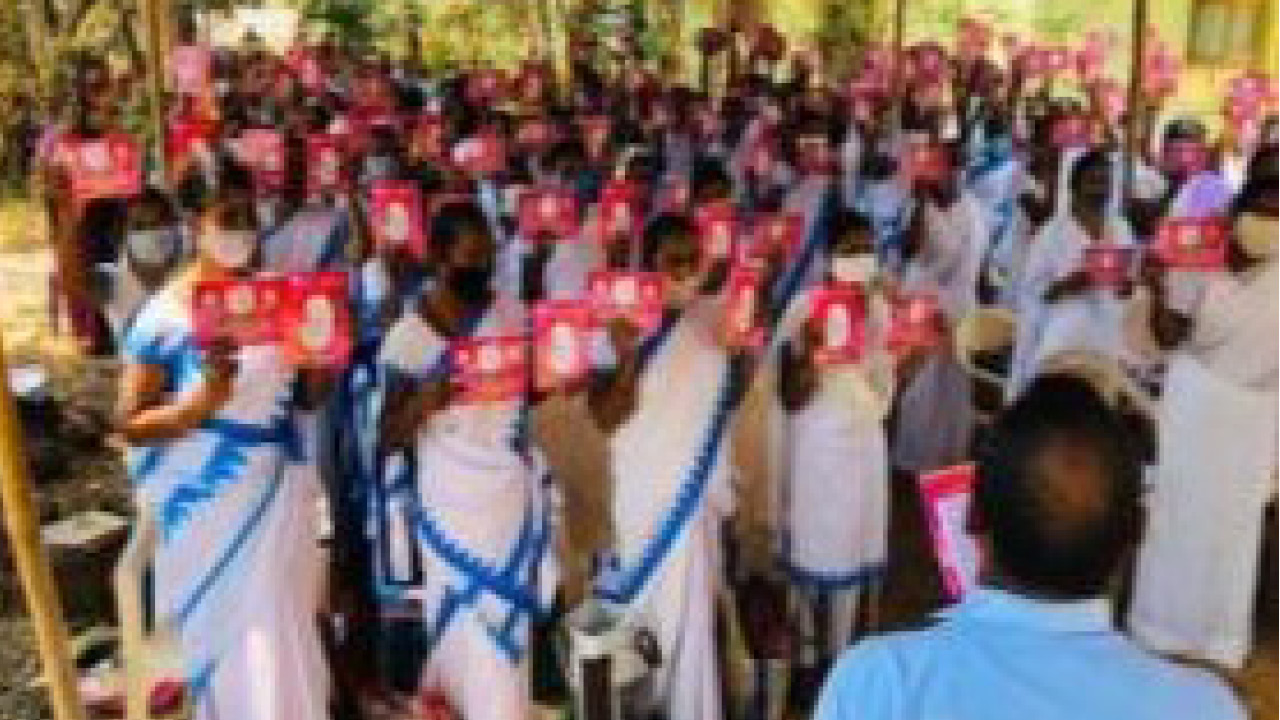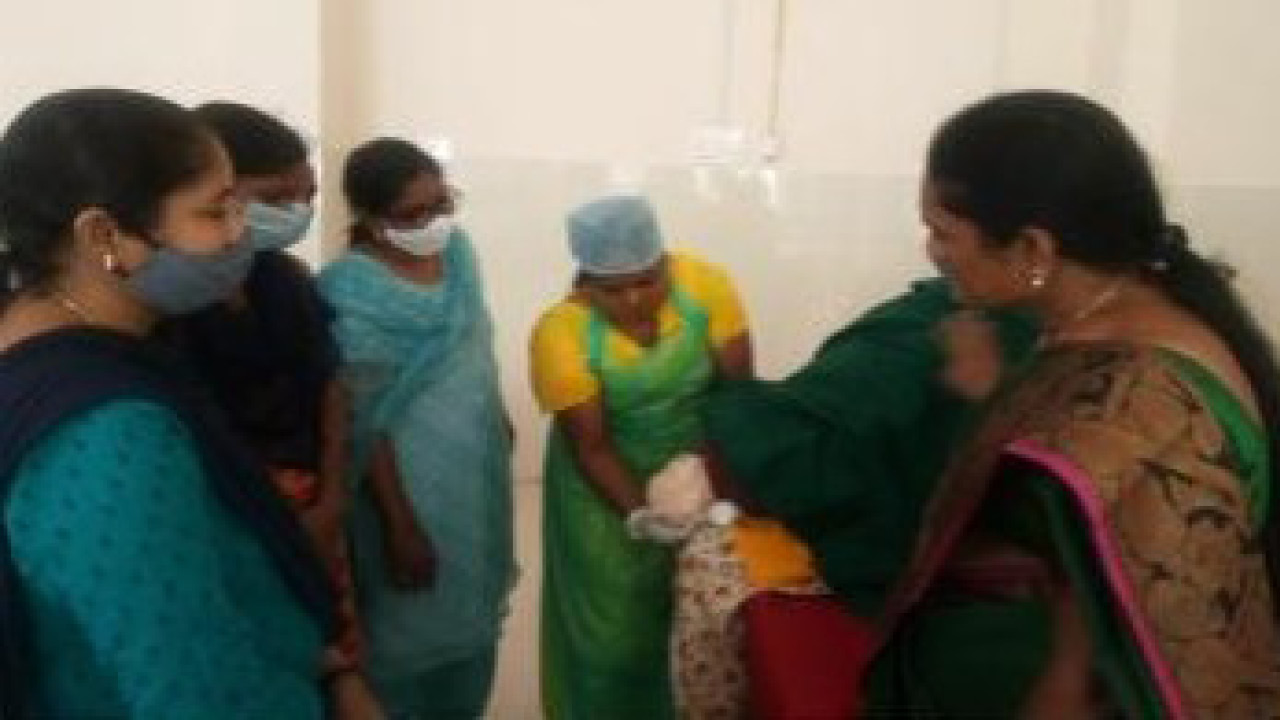Better Health Care for Tribal Families in Bhadradri District

Better Health Care for Tribal Families in Bhadradri District
Problem
- The project area was not faring well with regard to several health parameters
- Due to the terrain and remote areas, it was difficult to get access to health services
- Health issues such as malaria, dengue, TB and diseases relating to women and children were rampant
- Anaemia in pregnant women, maternal mortality, infant mortality, and malnourishment was high
Solution
- Capacity building of service providers to improve overall quality.
- Introduction of Total Sanitation Drive (TSD) to control vector-borne diseases.
- Establishment of surveillance and rapid response teams to conduct house to house surveys.
- Arrangement of mobile vehicles to make services accessible to interior remote areas.
- Introduction of De-worming programme, anaemia reduction programme, nutrition rehabilitation centre and DEIC to target beneficiaries
Outcomes
- The Malaria incidence has reduced from 1081 cases in 2018 to 250 cases in 2020 with zero mortality.
- The Dengue cases reduced from 694 in 2018 to 26 cases in 2020 with zero mortality.
- The Typhoid cases reduced from 2183 in 2018 to 56 cases in 2020.
- The MMR which was 180 per one lakh live births in 2018 reduced to 82 MMR in 2020.
- The IMR which was 24 in 2018 reduced to 17 in 2020
- Became the only Green zone district from Telangana State during the pandemic period
Project Details
Category: Government – District Governance
Project Title: Better Health Care for Tribal Families in Bhadradri District
Department or District: Bhadradri Kothagudem District
State: Telangana
Start Date of the Project: 11th November 2016
Website:
Tribe(s) that the Project Covers: The project primarily covers tribal families residing in Bhadradri Kothagudem District, which is an agency area with two-thirds of its population belonging to various tribal communities. Predominant tribes include the Koya, Lambadi (Banjara), Gond, Gutti Koya, and Konda Reddi
Keywords: Tribal Health, Mobile Healthcare, Maternal and Child Health, Preventive Healthcare, Capacity Building, Community Participation, Disease Surveillance, Sanitation Drives, Safe Motherhood, Vaccination Campaigns, Door-to-Door Services
Bhadradri Kothagudem District, geographically the largest district in Telangana, shares borders with Andhra Pradesh and Chhattisgarh. It has 23 mandals, two revenue divisions, and 1,280 habitations. The district is predominantly tribal, with most of the population living below the poverty line and exhibiting high illiteracy rates. The health infrastructure includes 29 Primary Health Centres (PHCs), five Urban PHCs (UPHCs), four Community Health Centres (CHCs), one Area Hospital, and one District Hospital.
The Project
The project aimed to address the significant health challenges faced by tribal families in this remote district, focusing on increasing access to healthcare services, improving maternal and child health, reducing disease burden, and promoting preventive healthcare practices.
Problems that it Intends to Solve
The primary health issues in the district included poor access to healthcare services, high rates of illiteracy, and reliance on traditional health practices. The region faced frequent outbreaks of malaria, dengue, tuberculosis (TB), and high incidences of anaemia in pregnant women, maternal and infant mortality, and malnutrition among children. Deep forests, frequent Godavari floods, and left-wing extremism (LWE) further compounded access issues.
What was the Need
The tribal population’s remote locations, lack of awareness, and dependence on traditional healers necessitated a focused, community-driven healthcare model. The existing government health services were insufficient to reach these populations effectively, creating an urgent need to strengthen healthcare delivery mechanisms.
What Hindered its Introduction
Major obstacles included the geographical isolation of tribal villages, poor transport connectivity, resistance due to traditional beliefs, language barriers, and the initial lack of coordination between different stakeholders.
Process Followed for Implementation
- Government
- The government played a central role by initiating multiple interventions such as mobile health units, strengthening PHCs and CHCs, establishing surveillance teams, and launching targeted maternal and child health schemes.
- Involvement of Community
- Community engagement was achieved through awareness campaigns, capacity-building activities, door-to-door health visits, and participation in cleanliness drives, which helped build trust and facilitate health-seeking behaviour.
Solutions Implemented
The district adopted a multi-pronged strategy that included:
- Awareness Campaigns: Conducted village-level convergence meetings, awareness sessions through platforms like VHND and VHSNC, and cultural initiatives such as Kalajatha.
- Capacity Building: Trained service providers on safe motherhood practices (Dakshata, SBA), vaccination (EVIN, RI), child health (HBNC, HBYC), and leprosy control (SLAC).
- Preventive Healthcare: Implemented total sanitation drives, improved drainage systems, disinfected public spaces, and undertook mosquito control measures like indoor spraying and distribution of LLINs.
- Surveillance: Established rapid response and special joint surveillance teams for disease tracking and COVID-19 containment. Regular house-to-house fever surveys and TB detection drives were conducted.
- Mobile Healthcare: Deployed 23 mobile health vehicles, 19 “102” ambulances for antenatal care, 12 RBSK vehicles for child screening, 20 “108” ambulances for emergencies, and six FLR bike ambulances to reach inaccessible areas.
- Door-to-Door Visits: Health workers provided home-based care including antenatal/postnatal services, NCD check-ups, medicine delivery, palliative care, and follow-up of TB and leprosy cases.
- Vector Control: Undertook Friday Dry Day campaigns, released gambusia fish in stagnant waters, and conducted anti-larval operations to control mosquito breeding.
- Vaccination & De-Worming: Ensured 100% de-worming among children, successfully implemented pulse polio and measles-rubella vaccination campaigns, and achieved 99% COVID vaccination among healthcare workers.
- Maternal & Child Health: Focused on safe motherhood through early registrations, antenatal check-ups, Arogya Laxmi scheme, emergency obstetric care at PHCs, and KCR Kit distribution.
- Nutrition Rehabilitation: Established Nutrition Rehabilitation Centres and District Early Intervention Centres to manage malnourishment and low birth weight among children.
The interventions covered the entire Bhadradri Kothagudem District, including its most remote and forested villages, ensuring that health services reached every tribal habitation.
Innovation and Unique Features
The project integrated mobile health units, bike ambulances, and door-to-door health delivery, which were innovative approaches in this geographically challenging district. The district also focused on convergence of different departments and adopted community-centric models like mid-day meals during antenatal check-ups to improve health-seeking behaviour.
New Approaches
- The project integrated technology through surveillance apps, eVIN for vaccine cold-chain management, and capacity-building tools for frontline health workers. Culturally sensitive methods included community mobilization through local art forms like Kalajatha and respecting traditional leaders to improve acceptance.
- The tribal communities actively participated in the sanitation drives, Friday Dry Day campaigns, and awareness initiatives, which helped shape and sustain the health interventions.
- During implementation, the project adapted by introducing mobile healthcare facilities and bike ambulances to overcome logistical challenges in reaching the interior villages.
Challenges Faced Before Implementation
- Internal Challenges
- Lack of trained staff in remote PHCs
- Inadequate healthcare infrastructure
- Limited disease surveillance systems
- External Challenges
- Geographical isolation
- Deep forest areas and frequent floods
- Traditional health beliefs hindering modern treatment uptake
- Mitigation Efforts
- Regular training sessions for health workers
- Mobile healthcare teams to overcome access issues
- Community awareness programs to shift traditional health practices
Challenges Faced During Implementation
- Internal Challenges
- Resistance from some health staff to work in remote areas
- Supply chain interruptions for medicines and vaccines
- External Challenges
- Lingering trust deficit among some tribal groups
- Seasonal floods and Left-Wing Extremism areas restricting movement
- Mitigation Efforts
- Provided incentives and recognition for health staff working in tough terrains
- Developed district-level quality assurance teams to ensure timely supply
- Strengthened coordination with local leaders to build trust
Outcomes
- Quantitative
- Malaria cases reduced from 1,081 (2018) to 250 (2020) with zero mortality
- Dengue cases reduced from 694 (2018) to 26 (2020) with zero mortality
- Typhoid cases dropped from 2,183 (2018) to 56 (2020)
- Maternal Mortality Rate reduced from 180 (2018) to 82 per one lakh live births (2020)
- Infant Mortality Rate reduced from 24 (2018) to 17 (2020)
- 100% deworming and pulse polio coverage for the past three years
- 99% COVID-19 vaccination among healthcare workers
- Qualitative
- Improved health-seeking behaviour among tribal communities
- Enhanced community participation in preventive health measures
- Increased institutional deliveries and reduced maternal complications
- The district established regular monitoring through house-to-house surveys, mobile health reporting, and rapid response teams. Health outcomes were closely tracked using surveillance data and vaccination records.
Beneficiaries
The primary beneficiaries were the tribal families of Bhadradri Kothagudem District, including pregnant women, newborns, children, patients with communicable diseases, and people with chronic health conditions.
Replicability / Scalability / Sustainability
- The project’s best practices have aligned with national initiatives like TB-free India, Pulse Polio campaigns, and COVID-19 containment strategies.
- Support from state health departments and existing national health schemes contributed to the financial viability of the project.
- The integrated and mobile healthcare model used in Bhadradri Kothagudem is scalable and can be replicated in other geographically challenging and tribal-dominated districts.




